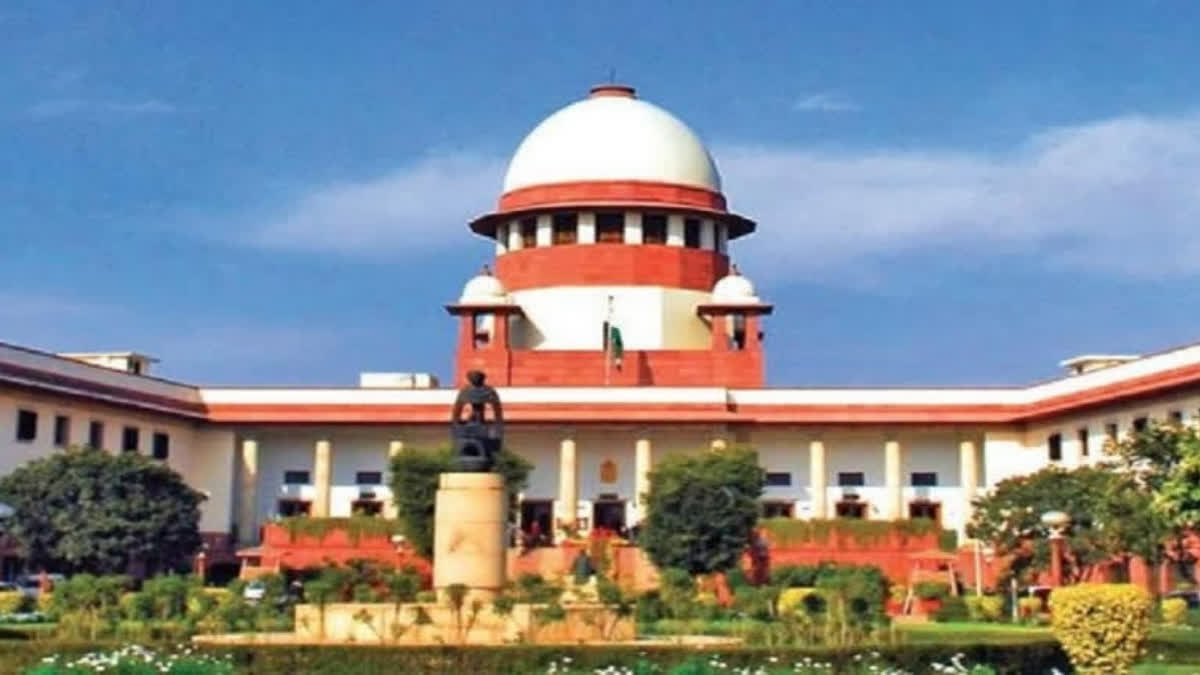New Delhi: The Tamil Nadu government has told the Supreme Court it has not issued any order imposing a "shadow or implicit ban" on 'The Kerala Story', a multilingual film that has triggered a massive controversy over religious conversion. It said despite the state providing necessary security to theatres and multiplexes, their owners decided to stop exhibiting the film from May 7 because of lack of enthusiastic response from the general public.
The state government, in its reply to the petition filed by the makers of the film alleging a de-facto ban in the state, said amidst objections and protests the movie was released in 19 multiplexes throughout Tamil Nadu on May 5. "The film was heavily criticized after its release, with some Muslim organizations alleging that the film spreads "anti-Muslim hate" and "Islamophobia" among the common public and has been produced solely with the intent to polarize other religions against Muslim," it said.
Questioning the maintainability of the plea filed under Article 32 of the Constitution, the state government said, "It is submitted that the government of Tamil Nadu has not issued any order banning the public exhibition of the film, nor is there a de-facto ban on the film in the state". Article 32 of the Indian Constitution gives the right to individuals to move to the Supreme Court to seek justice when they feel they have been deprived of their fundamental rights.
The affidavit, filed through Additional Advocate General (AAG) Amit Anand Tiwari, said on the contrary, the state, by issuing alerts and deploying police personnel for the protection of the theatres which screened the film, has effectuated meaningful exercise of the right of the petitioners to freedom of speech and expression guaranteed under Article 19(1)(a) of the Constitution. It said adequate police protection provided by the state facilitated the theatre owners to screen the film throughout Tamil Nadu on May 5 and 6 despite backlash from certain Muslim organisations.
"However, due to the lack of reception from the general public, theatre and multiplex owners of the state decided to stop exhibiting the film from May 7," it said, adding the content of the petition alleging that the state has imposed a "shadow or implicit ban" on the film is false and baseless, and is vehemently denied. The state government said, "It is submitted that motivated by malafide intentions and in an attempt to seek publicity, the petitioners have made false and sweeping allegations against the Respondent-4 (Tamil Nadu) despite the fact that the state is discharging its positive obligation to create and maintain conditions in which the film can be screened."
It said exhibitors have themselves stopped the screening of the movie due to the poor audience response and the government cannot do anything to increase the audience patronage for the film, except to provide security to the cinema theatres. The state government added that on May 5, demonstrations, agitations and picketing were held in 19 places by various Muslim organisations, and on May 6, demonstrations took place at seven places in Chennai and Coimbatore. A total of nine cases, including five in Chennai and four in Coimbatore, were registered against the protesters.
The affidavit filed by additional director general of police (law and order) of the state said on May 5, the DGP of Tamil Nadu had issued instructions to all commissioners of police and district superintendents of police to provide adequate security and protection to every cinema hall that screened the film. "The state has made adequate arrangements for security to facilitate the screening of the film, and to ensure that the theatre owners, viewers and audience are not endangered. Over 965 police personnel, including 25 DSPs, were posted for the protection of the 21 movie theatres which had screened the film," it said.
The affidavit said in view of the inputs received from reliable sources, the state intelligence on April 26 and May 3, issued alerts to the SPs in districts and commissioners of police in cities for keeping a close vigil on the law and order situation. 'The Kerala Story, starring Adah Sharma, was released in cinemas on May 5. Directed by Sudipto Sen, the film claims women from Kerala were forced to convert to Islam and recruited by the terror group Islamic State (IS).
On May 12, the top court had sought replies of the West Bengal and Tamil Nadu governments on a plea of the producers that the movie is not being shown in theatres in these two states. While West Bengal banned the movie after three days of screening in theatres, Tamil Nadu has not banned the film but the exhibitors have withdrawn from cinema halls owing to security concerns.
The top court had asked the Tamil Nadu government to specify measures taken to provide adequate security to theatres screening the film. "The state government cannot say that it will look the other way when theatres are attacked and chairs are being burnt," the apex court had told Tiwari after he submitted that there is no ban on the movie in the state. (PTI)



